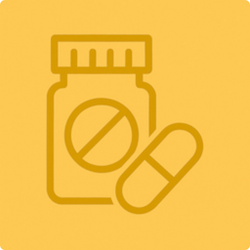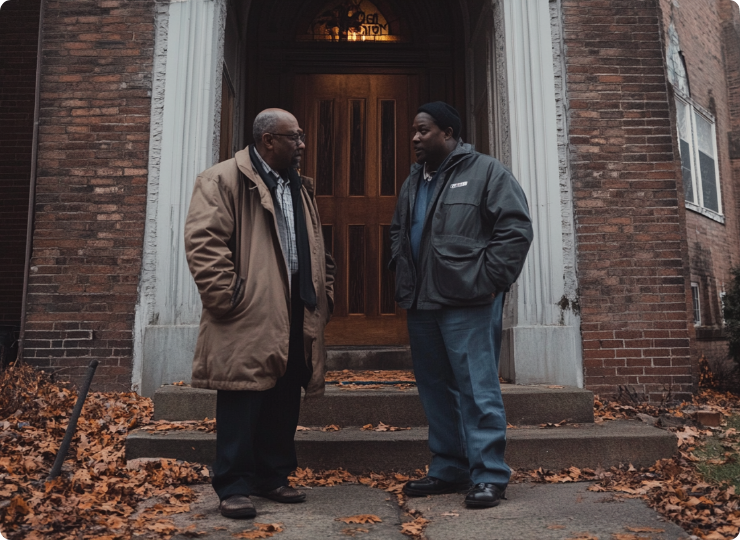Relapse Prevention and Recovery Coaching
- Michael McEvoy
- Jul 1, 2025
- 4 min read
Updated: Sep 16, 2025

Support That Does Not Stop at Discharge
At RiseWell Recovery, healing does not end when treatment does; it deepens. Completing a program is a powerful milestone, but recovery is a daily choice. If you're looking for addiction relapse prevention strategies, that's where recovery coaches come in. Regardless of your chosen recovery path, sober coaches offer guidance, accountability, and support rooted in supporting some of the best ways to stay sober through real-life transitions.
By integrating certified peer coaches into traditional treatment models, such as inpatient residential treatment programs, IOP, MAT, 12-step groups, and counseling, individuals gain a consistent, compassionate partner to navigate early challenges, celebrate progress, and stay connected to their purpose.
The First Year Is Critical - and Vulnerable
Even with quality care, early recovery can feel uncertain. Studies show the first year carries the highest risk of setbacks:

Drug and Alcohol Rehab Relapse Rates:
Up to 85% of individuals may experience setbacks within the first 12 months. Source: National Institutes of Health (NIH)

IOP Relapse Rates:
Approximately 50–70% return to use within one year.
Source: NIH & Journal of Substance Abuse Treatment

MAT Relapse Rates:
With ongoing support, setback rates drop to 20–50%, but tapering off too soon sees relapse rise to 70–90%.
Source: National Institute on Drug Abuse (NIDA)

12-Step Programs (AA/NA) Relapse Rates:
Around 40–60% of individuals who regularly attend maintain sobriety after one year.
Source: Journal of Substance Abuse Treatment – PMC

Drug & Alcohol Counseling:
Setback rates often mirror IOP and inpatient results, with 40–60% relapsing without extended support. Source: Journal of Addiction Research & Therapy – PMC
What Recovery Coaching Adds

Recovery coaches are trained peers with lived experience. They walk beside, not ahead. Their role is grounded in empathy, encouragement, and real-world accountability. Moreover, research confirms: they help reduce addiction relapse rates, sustaining long-term recovery.
Reduced Substance Use & Setbacks
A SAMHSA review found that individuals working with peer recovery coaches saw meaningful reductions in substance use and greater success in maintaining sobriety.
Improved Engagement & Retention
Programs with recovery coaches report higher treatment adherence and retention. A Massachusetts-based study noted an 83.4% enrollment rate among referred patients, a nearly unheard-of rate in early recovery programs.
Better Outcomes Across the Board
From fewer ER visits to improved well-being, peer support leads to stronger provider relationships and greater client satisfaction.

“Peer providers offer valuable guidance by sharing their own experiences … improving social connectedness and helping to identify new positive social environments.” Reif et al., Peer Recovery Literature Review
Reducing Addiction Relapse Rates: How Coaching Enhances Each Treatment Modality
Drug and Alcohol Rehab | Residential Treatment:
Coaches provide continuity after discharge, bridging the gap between rehab and real life with structure, encouragement, and practical support.
Intensive Outpatient Program (IOP):
Coaches help individuals stay engaged between sessions, reinforcing goals and reducing the risk of slipping through the cracks.
Medication-Assisted Treatment (MAT):
Coaches provide non-judgmental support, assisting individuals with housing, employment, and treatment adherence, which leads to improved outcomes and reduced reliance on crisis care.
12-Step Programs:
Coaches help clients explore peer support groups, such as AA and NA, without pressure, offering guidance for those unsure about the language, culture, or philosophy of these groups
Drug and Alcohol Counselling:
When paired with counseling, coaching helps turn insight into action. Coaches support implementation, goal tracking, and accountability on a day-to-day basis.
The Research Is Growing, and The Results Are Clear
Recovery coaches improve outcomes post-discharge from rehabs/residential treatment. SAMHSA highlights peer support as a vital recovery resource that enhances engagement, quality of life, and continuity of care, particularly during transitions such as those following inpatient treatment.
Lower relapse rates and higher abstinence rates with recovery coaching. Findings note higher abstinence rates and fewer relapses among individuals who received recovery coaching, especially in early recovery and post-treatment.
Improved treatment retention and reduced emergency care usage. This statewide evaluation found that participants in recovery coaching were more likely to stay in treatment and less likely to use emergency services, highlighting the stabilizing effect of coaching.
Source: Massachusetts Bureau of Substance Addiction Services – Peer Recovery Coaching Evaluation (2020)
10–30% estimated relapse reduction in studies that included recovery support specialists. This summary indicates that peer recovery services are associated with meaningful decreases in relapse rates, typically in the range of 10–30%, depending on the population and setting.
Improved Access to Social Supports. Both studies demonstrate that peer recovery support services help individuals expand and strengthen their social networks, which is a protective factor in sustained recovery.
Read more:
We Walk with You
At RiseWell Recovery, our certified recovery coaches walk alongside you, offering steady, compassionate support as you navigate your recovery journey. Whether you’re returning from treatment and need a sober companion or are shaping a new path and looking for an interventionist and sober transportation, we’re here to move forward with you, one meaningful step at a time. Ready to strengthen your recovery journey? Book a free discovery call.
Serving Connecticut with Heart and Purpose
We proudly serve individuals and families across Western Connecticut, offering coaching in Danbury, Bridgeport, Stamford, Waterbury, Torrington, and beyond.



